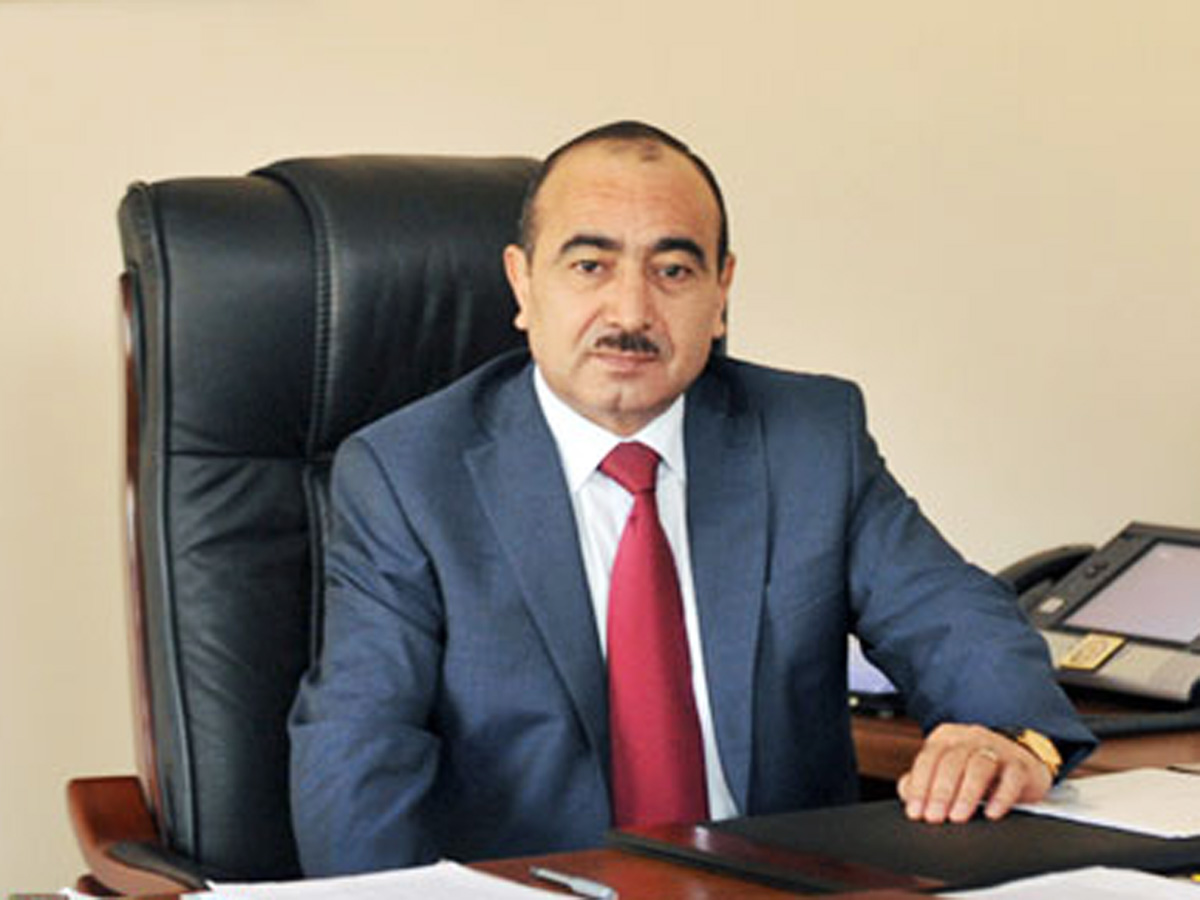Baku, Azerbaijan, Nov. 18
Trend:
Azerbaijan is considered the most geopolitically important and promising country of the South Caucasus according to the parameters that determine the modern geopolitical characteristics, development trends and prospects of the region’s countries, said Ali Hasanov, Azerbaijani president’s aide for public and political affairs.
Hasanov was addressing a meeting of the Presidium of Azerbaijan’s National Academy of Sciences in Baku Nov. 18 with a speech on “The Current Geopolitical Development Realities and Prospects of Azerbaijan.”
“Azerbaijan is considered the leading country in the South Caucasus for its geographical, natural and human resources,” he noted, adding that the qualitative and quantitative indicators of human resources in Azerbaijan are higher and more promising than in any other South Caucasus country.
“Population growth in Azerbaijan was 111,000 in 2015, while it was 10,000 in Georgia and 12,000 in Armenia,” he explained.
Hasanov noted that in terms of geopolitical and geoeconomic situation, Azerbaijan is the undisputed leader of the region for its most important location in the Caspian basin and South Caucasus, which enjoys rich geoeconomic potential.
Among the other factors of Azerbaijan’s regional leadership, Hasanov named the country’s economic and labor resources, human potential, the population’s support for state policy, internal stability, national and civic unity, rich energy sources, land and sea borders with such regional leaders as Russia, Turkey and Iran, its active geopolicies with the US and big Western European countries, Russia, China, Turkey, Iran and Israel and international geopolitical actors.
He went on to say that 70 percent of the total GDP of South Caucasus in 2015, which exceeded $75 billion, accounted for Azerbaijan.
Total industrial production value in South Caucasus is $20 billion and 80 percent of this accounts for Azerbaijan, said Hasanov.
In total, $26 billion were invested from all the sources to South Caucasus in 2015, and $19.5 billion, or 72 percent of this accounted for Azerbaijan, he noted, adding that $10.7 billion of these investments was foreign.
“The country completely or partially ensured its safety in many areas in terms of the self-sufficiency,” Hasanov said.
“Thus, Azerbaijan’s geopolitical and geoeconomic development and prospects are incomparable with that of other countries of South Caucasus,” said Hasanov.
He added that according to the aforementioned parameters, Armenia has been in isolation from all regional and transnational projects and has suffered a severe social and economic crisis.
Armenia is a completely and utterly dependent country, noted the top official, adding that the country doesn’t have any geopolitical and geoeconomic role.
Azerbaijan, for all the geopolitical and geoeconomic parameters, can be compared with such leading post-Soviet countries as Russia, Belarus and Kazakhstan, he said.
Hasanov said Azerbaijan enjoys a favorable position in the transnational energy export corridors and in the transportation and communication system.
“Azerbaijan’s situation in terms of energy resources is incomparable with that of any other neighbor country in the South Caucasus,” he said. “Azerbaijan’s energy resources are comprised of 4.6 billion tons of conventional fuel – two billion tons of oil and 2.6 trillion cubic meters of gas.”
Hasanov went on to add that diversification of export routes has given Azerbaijan a possibility to safely deliver its hydrocarbon resources to the global market.
“Geopolitically and geoeconomically Azerbaijan is also considered a gateway to Eurasia, a central state in transportation, communication and energy corridors,” said Hasanov.
He added that Azerbaijan’s turning into a key participant of transportation and communication relations has in the past few years had a significant impact on the reconstruction, in line with modern requirements, of domestic, regional and international road and transportation infrastructure, including the many transit systems within the East-West and North-South transportation corridors.
Speaking about the current military and geostrategic situation in the South Caucasus, Hasanov said Azerbaijani army’s personnel strength, the army’s military and technical state, combat readiness and the quality of its weaponry are much higher than that of Georgia and Armenia.
“Aside from that, Azerbaijan is considered a leader in the South Caucasus in terms of the total budget allotted to army building. In 2003, Azerbaijan’s military budget was $135 million, whereas in 2015 this figure stood at $4.2 billion, increasing sharply each year since then,” added Hasanov.
Further speaking about the situation on borders, the presidential aide reminded that the common borderlines with Caspian and South Caucasian countries haven’t been fully demarcated and delimited.
“Twenty percent of Azerbaijan’s territory, including a 132-km section of the Azerbaijan-Iran border and a 733-km section of the Azerbaijan-Armenia border has been occupied by the Armenian armed forces,” he said.
However, added Hasanov, the coefficient of the border security is rising thanks to strengthening cooperation on border security with neighbor states, excluding Armenia, joint fight against transnational crime and deepening partnership on security and protection of borders on land and on Caspian Sea.






